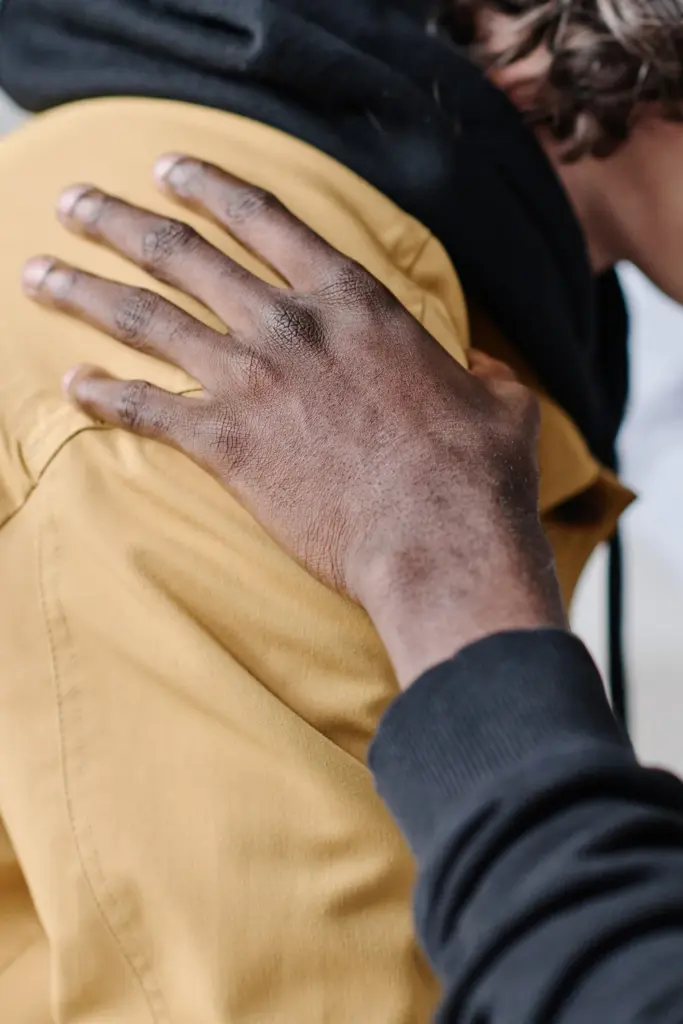Cannabis whispers promises of relaxation, but many times screams addiction.
Your relationship with marijuana might have started innocently – a social joint here, a stress-relief puff there – but somewhere along the way, something changed.
Understanding whether you or your loved one needs rehab for weed addiction requires understanding, compassion, and professional support. What was once casual has become complicated, and now you’re wondering: is professional help actually necessary?
Related: Can You Force Someone to Go to Rehab? A Guide for Concerned Families
Understanding Marijuana Addiction

Addiction isn’t a choice, and it’s not limited to just “street drugs.”
Many individuals wonder, ”Can you go to rehab for weed addiction?”, and the answer is a resounding yes. In fact, we have specialized treatment programs that are designed specifically for cannabis dependency.
Contrary to popular belief, marijuana dependency is far more than a simple habit. The human brain develops intricate neural pathways that reinforce substance use, creating a sophisticated feedback loop of craving and temporary relief.
When THC enters the body, it hijacks the brain’s natural reward system, flooding neural receptors with dopamine and creating an artificial sense of pleasure. Over time, these repeated interactions fundamentally alter brain chemistry, making natural dopamine production increasingly difficult.
What starts as recreational use can gradually transform into a physiological dependency that extends far beyond willpower.
Research demonstrates that approximately 30% of marijuana users may develop some degree of use disorder, with genetic predispositions, environmental factors, and mental health playing significant roles in addiction development. The brain’s remarkable neuroplasticity means that repeated substance use can literally reshape neural connections, making breaking free increasingly challenging without professional intervention.
Signs of Cannabis Dependence
Seeking cannabis dependence help is a courageous first step toward reclaiming control of your life and mental health.
Physical Symptoms
Understanding weed withdrawal symptoms is crucial for developing effective, compassionate treatment strategies. The body speaks volumes about marijuana dependency through subtle yet persistent signals. Chronic users might experience:
- Disrupted sleep patterns
- Unexplained weight fluctuations
- Respiratory issues
- Tremors
- Increased heart rate
- Heightened anxiety can manifest as the body struggles to maintain homeostasis without regular THC consumption
Physiological withdrawal symptoms often include intense cravings, irritability, and potential mood swings. Sweating, headaches, and digestive irregularities frequently accompany early stages of cessation.
Related: Breaking Down the Chase the Dragon Meaning
Behavioral Changes
Addiction rewrites behavioral scripts, transforming personality and decision-making processes. Users might progressively isolate themselves, prioritizing marijuana consumption over social interactions, professional responsibilities, and personal relationships. Motivation diminishes, replaced by a pervasive sense of apathy and reduced emotional responsiveness.
Cognitive flexibility becomes compromised, with decision-making increasingly centered around obtaining and consuming cannabis. Financial resources might be repeatedly redirected toward sustaining the habit, creating potential economic instability.
Denial becomes a powerful psychological mechanism with most any addiction, with individuals rationalizing their consumption patterns despite mounting negative consequences.
Social Impact
The ripple effects of marijuana dependency extend far beyond individual experience. Relationships strain under the weight of unpredictable behavior, reduced emotional availability, and potential financial stress. Professional opportunities may be compromised as concentration, motivation, and interpersonal dynamics become increasingly challenged.
Family dynamics frequently suffer, with trust eroding and communication breaking down. The social stigma surrounding addiction can further isolate individuals, creating a destructive cycle of increased substance use and reduced support networks. This complex social landscape underscores the critical importance of comprehensive, compassionate treatment approaches.
Benefits of Professional Treatment’

Professional treatment represents more than a temporary solution; it’s a comprehensive approach to holistic healing. If you’re asking yourself, “Can I go to rehab for weed addiction?” know that personalized treatment options exist to support your unique recovery journey. THC addiction recovery is a holistic process that requires medical expertise, psychological support, and personal commitment.
Rebuild relationships and strengthen your support network through The Springboard Center’s Family Program, offering both in-person and virtual sessions to help heal family dynamics affected by addiction.
Structured Recovery Environment
Medical detox is a critical first step in addressing severe cannabis dependency. Our rehab in Midland creates purposefully designed spaces that minimize external triggers and maximize healing potential (like our residential program).
These environments are meticulously crafted to support neurological recalibration, removing individuals from patterns of habitual use.
Controlled settings allow for intensive psychological work, providing a safe space where patients can deconstruct addiction’s underlying mechanisms.
Structured programs offer predictability – a crucial element often missing in addicts’ lives. Daily routines are carefully constructed to rebuild healthy behavioral patterns, reintroducing discipline and personal accountability. Therapeutic activities, from group sessions to individual counseling, are strategically integrated to support comprehensive recovery.
Expert Psychological Support
Our comprehensive marijuana addiction treatment approach addresses the complex neurological and psychological aspects of cannabis dependency. Addiction is rarely about the substance itself, but the complex psychological landscape surrounding its use.
Expert therapists unpack deep-rooted trauma, mental health challenges, and environmental factors contributing to dependency. Trauma-informed care recognizes that substance use often emerges as a coping mechanism for unresolved emotional wounds. The goal extends beyond abstinence, focusing on comprehensive personal transformation.
Dual-Diagnosis Treatment
Many individuals using marijuana regularly may be self-medicating underlying mental health conditions. Professional treatment recognizes this complex interplay by addressing both substance use and co-occurring mental health disorders simultaneously.
Our comprehensive approach begins with thorough mental health screening to identify any underlying conditions that may be contributing to substance use. Based on these findings, we develop individualized treatment plans that may include medication management when necessary, alongside specialized therapy approaches for conditions like anxiety and depression.
Throughout treatment, we focus heavily on developing effective coping skills for emotional regulation, ensuring patients have the tools they need to manage their mental health without relying on substances. Regular progress assessments allow us to continuously adjust treatment strategies, ensuring optimal outcomes for both addiction recovery and mental health management.
Find your path to recovery in The Springboard Center’s nationally recognized residential program, providing a controlled, trigger-free environment with 24/7 professional support.
Long-Term Success Strategies
Sustainable recovery demands more than temporary abstinence. Successful treatment programs equip individuals with lifelong tools for managing potential relapse triggers. Mindfulness practices, stress management techniques, and comprehensive lifestyle redesign become critical components of long-term healing.
Neuroplasticity research confirms that consistent, intentional practice can literally rewire addictive brain circuits. Patients learn to recognize and interrupt automatic behavioral patterns, developing new neural pathways that support healthy decision-making. Meditation, exercise, and purposeful community engagement become powerful recovery instruments in a cannabis rehab program.
Get Professional Support in Rehab for Weed Addiction at The Springboard Center
Whether you’re questioning your cannabis use or seeking help, The Springboard Center offers the support you need for marijuana cessation support.
Our flexible treatment options are tailored to your specific situation and recovery goals. We understand the complexities of cannabis dependency and provide evidence-based treatment approaches. Take the first step toward a clearer future – contact us to discuss your treatment options!




